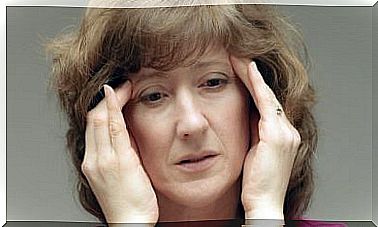Norway, Pioneer In The Treatment Of Mental Illness Without Drugs

Treating mental illness without drugs is an option that has always been on the table for discussion, it has always been an option. However, starting in the mid-20th century, this became something of a utopia for the more medical / physiological part of psychology.
With the discovery and mass production of neuroleptics it was believed to reach a climax. The creators and promoters of this type of drug pointed to the idea that the problems of the mind had a fundamentally organic root. Therefore, it became possible to treat them through the ingestion of chemicals. In this way, the idea that it was impossible to address mental illness without medication became popular.
However, there has always been a parallel current that sees it differently. It does not only involve a theoretical position, but there are many practical applications with encouraging results.
Building on that parallel tradition, Åsgård Psychiatric Hospital in Norway has begun treating mental illness without medication.

Respect for the autonomy of the patient
For several decades, there has been an acute controversy surrounding the rights of psychiatric patients. Most health systems and the specialists that form them start from the idea that a person diagnosed with a mental illness does not have autonomy and, therefore, others must decide for them. Unlike other illnesses, a psychiatric patient cannot resist whatever treatment they want to apply.
There are many psychiatrists in the world who do not share this principle. The fundamental rights of patients are an essential aspect at Åsgård Psychiatric Hospital. Its policy of treating mental illness without drugs is an advocate for patients’ rights .
In that institution, it is the patients who finally decide whether or not they want to take the drugs prescribed for them. They are also the ones who decide when is the moment to reduce the doses, with a view to stopping taking pills or psychiatric drugs. The patient’s perspective also counts.
Treat mental illness without medication
Åsgård Psychiatric Hospital fulfills a mandate from the Norwegian Ministry of Health. It is a State policy that seeks, mainly, to give mental patients an equal status in terms of rights.
To many this may seem far-fetched: how can a person with problems on their mind responsibly decide what is best for them? That question is asked by many, because there are also many who ignore the details of the so-called “mental illnesses”.
In general, what society handles are stereotypes of them. For example, it is thought that someone with schizophrenia always “reasons badly” when they are not. It is like thinking that a diabetic is always in crisis. The “mentally ill” have moments of crisis, but in many others they are stable.
Additionally, there are many studies that question the effectiveness of drug treatments. What is most questioned is not actually the effectiveness of these chemicals, but the way in which they are administered and perpetuated, often for convenience and unnecessarily.
In certain cases, hardly anyone disputes the power of pharmacology as a key to starting work with a patient who is decompensated.
Another issue is that pharmacology can “cure”, go to the root of the problem. This is actually the point, especially considering that certain drugs intended for the treatment of mental disorders have a long list of likely side effects.

An inadequate system
Reactions to the new strategy at Åsgård Psychiatric Hospital have not been long in coming. Many psychiatrists (and drug companies, of course) have severely criticized this option. They believe that it is irresponsible with patients and that it could lead to greater difficulties in their health. However, the Norwegian Psychiatric Association decided to back the initiative through an “open-minded” policy.
The president of the association, Anne Kristine Bergem, said that they will address this new experience at their annual meeting. It will be oriented towards two questions: “Do antipsychotics work? Do they have the effect we are led to believe? ” Both questions touch the very heart of biological psychiatry.
There are good reasons and enough evidence to suggest that current psychiatry has serious deficiencies. Many of them related to medication and the way the mental illness care system operates. In good time, initiatives like this emerge, which will surely shed many lights on this important issue.









